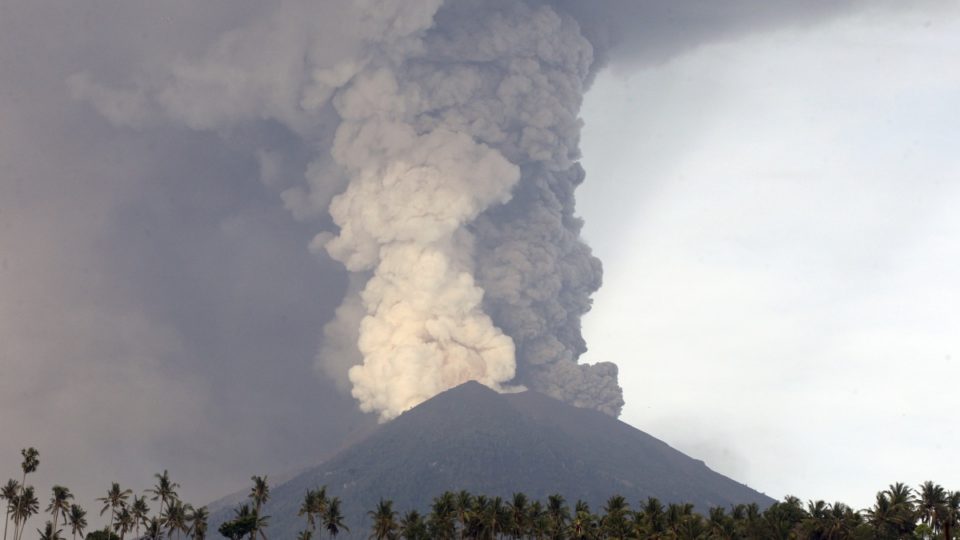Bali’s tempestuous Mt. Agung is at it again, this time erupting with a dense column of volcanic ash rising 2,000m into the sky. The latest eruption occurred on Sunday at 3:21am local time. (Bali is in the same time zone as Malaysia.)
Though the ash cloud was blown southwest by prevailing winds, towards Bali’s Ngurah Rai International Airport, there are no reports of flights or other airport operations being impacted by the eruption at this time. However, that is of course potentially subject to rapid change, so if you have travel plans to or from Bali in the coming days, it’s certainly wise to check with your airline before making your way to the airport.
Mt. Agung, a stratovolcano, is located in the northeast of Bali, and as the island’s highest point (3,031m), dominates the surrounding landscape. The most recent period of activity began in late 2017, and intensified to produce five significant eruptions in November of that year. Additional eruptions occurred in January, June, July, and December of 2018, and since this year began, eruptions have occurred in every month. These events have been relatively minor, prompting evacuations and causing considerable inconvenience to residents and travellers alike, but resulting in no deaths or substantial damage.
The March 1963 eruption of Mt. Agung, on the other hand, was one of the most devastating volcanic events in Indonesian history. After a month of explosive events, Agung erupted violently on March 17, killing at least 1,500 people in the initial event. Over the following days, heavy rainfall mixed with volcanic ash created extensive lahars, destructive volcanic mudflows which claimed the lives of an additional 200 people. Another eruption in May 1963 resulted in lethal pyroclastic flows that killed an estimate 200 more.
Currently, a four-kilometre exclusion zone is in place around Mt. Agung, and the volcanic alert status remains at level three (of four possible levels). Sutopo Purwo Nugroho, a spokesman for the national disaster mitigation agency, briefed the press, saying, “This a normal situation of an active volcano and there is no need for the public to panic, as long as they remain outside the danger zone.”
"ExpatGo welcomes and encourages comments, input, and divergent opinions. However, we kindly request that you use suitable language in your comments, and refrain from any sort of personal attack, hate speech, or disparaging rhetoric. Comments not in line with this are subject to removal from the site. "





















